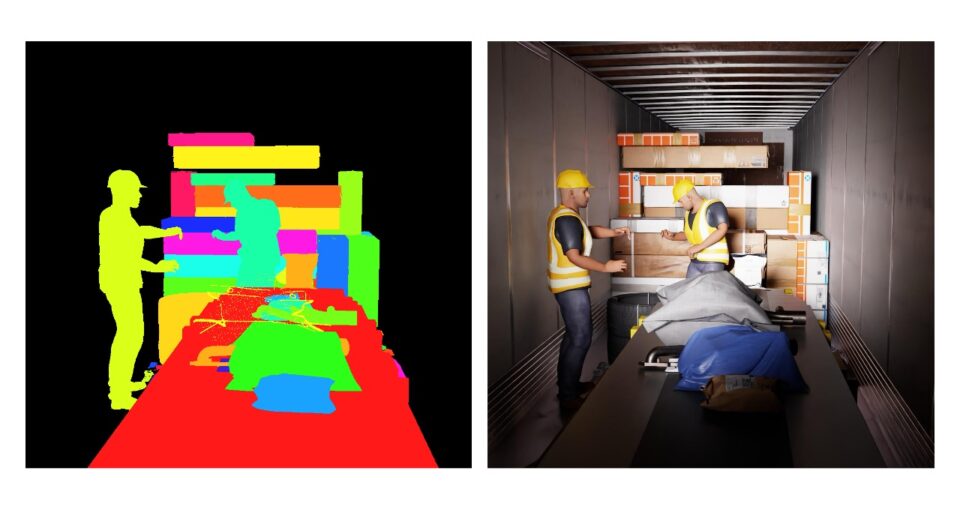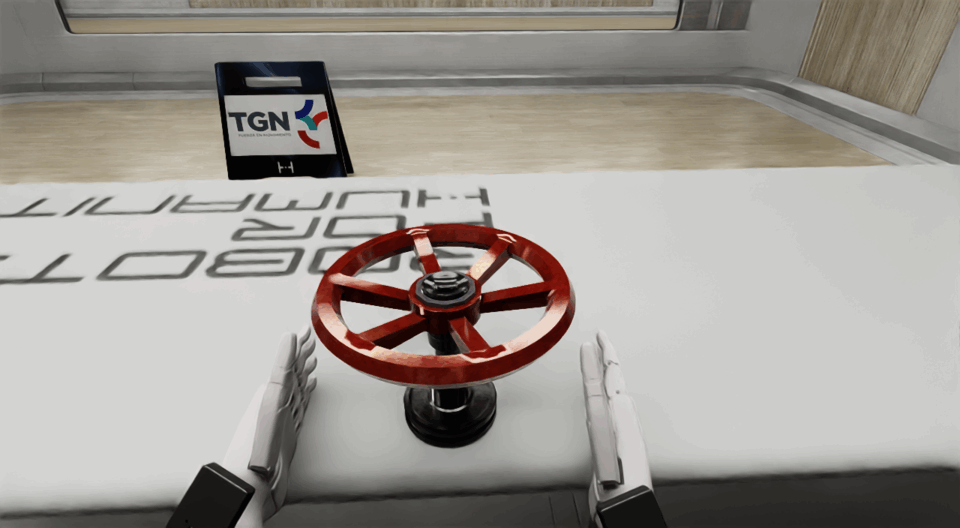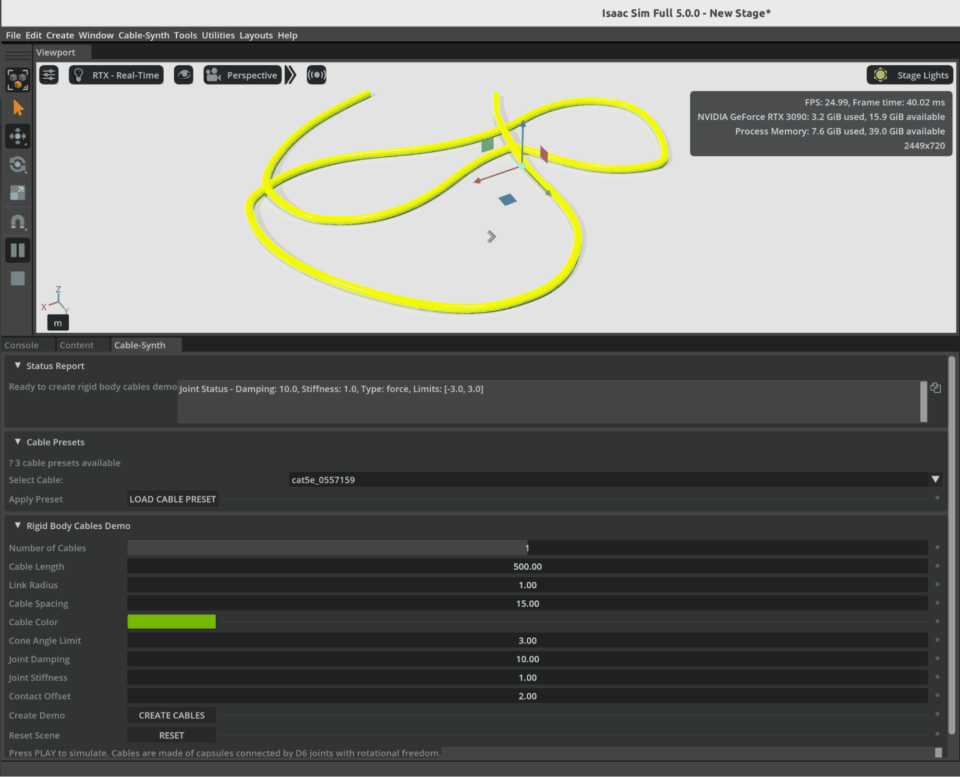Editor’s be aware: This put up is a part of Into the Omniverse, a sequence targeted on how builders, 3D practitioners and enterprises can rework their workflows utilizing the newest advances in OpenUSD and NVIDIA Omniverse.
Bodily AI fashions — which energy robots, autonomous automobiles and different clever machines — should be protected, generalized for dynamic eventualities and able to perceiving, reasoning and working in actual time. Not like giant language fashions that may be skilled on huge datasets from the web, bodily AI fashions should study from information grounded in the actual world.
Nevertheless, gathering ample information that covers this extensive number of eventualities in the actual world is extremely troublesome and, in some circumstances, harmful. Bodily based mostly artificial information technology gives a key technique to handle this hole.
NVIDIA lately launched updates to NVIDIA Cosmos open world basis fashions (WFMs) to speed up information technology for testing and validating bodily AI fashions. Utilizing NVIDIA Omniverse libraries and Cosmos, builders can generate bodily based mostly artificial information at unimaginable scale.
Cosmos Predict 2.5 now unifies three separate fashions — Text2World, Image2World and Video2World — right into a single light-weight structure that generates constant, controllable multicamera video worlds from a single picture, video or immediate.
Cosmos Switch 2.5 permits high-fidelity, spatially managed world-to-world fashion switch to amplify information variation. Builders can add new climate, lighting and terrain circumstances to their simulated environments throughout a number of cameras. Cosmos Switch 2.5 is 3.5x smaller than its predecessor, delivering sooner efficiency with improved immediate alignment and physics accuracy.
These WFMs may be built-in into artificial information pipelines operating within the NVIDIA Isaac Sim open-source robotics simulation framework, constructed on the NVIDIA Omniverse platform, to generate photorealistic movies that cut back the simulation-to-real hole. Builders can reference a four-part pipeline for artificial information technology:
- NVIDIA Omniverse NuRec neural reconstruction libraries for reconstructing a digital twin of a real-world setting in OpenUSD, beginning with only a smartphone.
- SimReady property to populate a digital twin with bodily correct 3D fashions.
- The MobilityGen workflow in Isaac Sim to generate artificial information.
- NVIDIA Cosmos for augmenting generated information.
From Simulation to the Actual World
Main robotics and AI corporations are already utilizing these applied sciences to speed up bodily AI growth.
Skild AI, which builds general-purpose robotic brains, is utilizing Cosmos Switch to enhance current information with new variations for testing and validating robotics insurance policies skilled in NVIDIA Isaac Lab.
Skild AI makes use of Isaac Lab to create scalable simulation environments the place its robots can practice throughout embodiments and functions. By combining Isaac Lab robotics simulation capabilities with Cosmos’ artificial information technology, Skild AI can practice robotic brains throughout numerous circumstances with out the time and value constraints of real-world information assortment.
Serve Robotics makes use of artificial information generated from hundreds of simulated eventualities in NVIDIA Isaac Sim. The artificial information is then used along side actual information to coach bodily AI fashions. The corporate has constructed one of many largest autonomous robotic fleets working in public areas and has accomplished over 100,000 last-mile meal deliveries throughout city areas. Serve’s robots gather 1 million miles of knowledge month-to-month, together with almost 170 billion image-lidar samples, that are utilized in simulation to additional enhance robotic fashions.
Be taught extra about how Serve Robotics makes use of Isaac Sim to speed up growth, testing and deployment of its sidewalk supply robots by watching the beneath livestream.
Past bringing individuals meals, Serve lately used its robots to ship compute energy — dropping off brand-new NVIDIA DGX Spark private AI supercomputers to Refik Anadol, Will.I.AM and Ollama. With 1 petaflop of AI efficiency, DGX Spark gives builders desktop capabilities for workflows from AI mannequin prototyping and mannequin fine-tuning to inference and robotics growth.
Autonomous drone supply firm Zipline additionally participated within the DGX Spark drop, with Chief {Hardware} Officer Jo Mardall receiving a DGX Spark by drone on the firm’s headquarters and testing facility in Half Moon Bay, California. Zipline makes use of the NVIDIA Jetson edge AI and robotics platform for its drone supply methods.
See How Builders Are Utilizing Artificial Knowledge
Lightwheel, a simulation-first robotics answer supplier, helps corporations bridge the simulation-to-real hole with SimReady property and large-scale artificial datasets. With high-quality artificial information and simulation environments constructed on OpenUSD, Lightwheel’s strategy helps guarantee robots skilled in simulation carry out successfully in real-world eventualities, from manufacturing facility flooring to properties.
Knowledge scientist and Omniverse group member Santiago Villa is utilizing artificial information with Omniverse libraries and Blender software program to enhance mining operations by figuring out giant boulders that halt operations.
Undetected boulders getting into crushers may cause delays of seven minutes or extra per incident, costing mines as much as $650,000 yearly in misplaced manufacturing. Utilizing Omniverse to generate hundreds of routinely annotated artificial pictures throughout assorted lighting and climate circumstances dramatically reduces coaching prices whereas enabling mining corporations to enhance boulder detection methods and keep away from tools downtime.
FS Studio partnered with a worldwide logistics chief to enhance AI-driven bundle detection by creating hundreds of photorealistic bundle variations in numerous lighting circumstances utilizing Omniverse libraries like Replicator. The artificial dataset dramatically improved object detection accuracy and lowered false positives, delivering measurable positive factors in throughput velocity and system efficiency throughout the client’s logistics community.

Robots for Humanity constructed a full simulation setting in Isaac Sim for an oil and fuel shopper utilizing Omniverse libraries to generate artificial information, together with depth, segmentation and RGB pictures, whereas gathering joint and movement information from the Unitree G1 robotic by teleoperation.

Omniverse Ambassador Scott Dempsey is growing an artificial information technology synthesizer that builds varied cables from real-world producer specs, utilizing Isaac Sim to generate artificial information augmented with Cosmos Switch to create photorealistic coaching datasets for functions that detect and deal with cables.

Get Plugged Into the World of OpenUSD
Be taught extra about OpenUSD, Cosmos and artificial information for bodily AI by exploring these sources:
Keep updated by subscribing to NVIDIA Omniverse information, becoming a member of the Omniverse group and following Omniverse on Discord, Instagram, LinkedIn, Threads, X and YouTube.
Discover the Alliance for OpenUSD discussion board and the AOUSD web site.